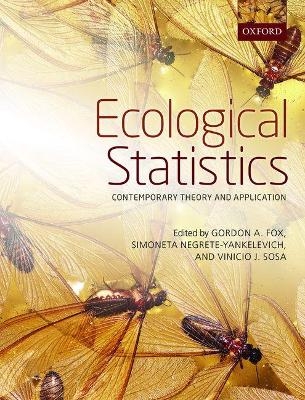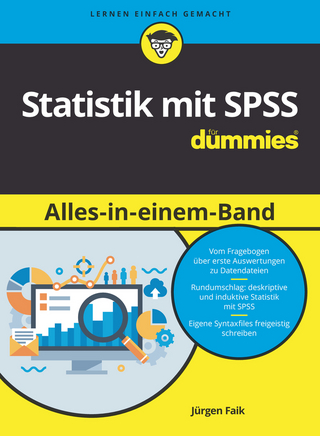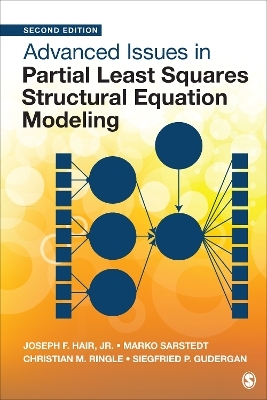
Ecological Statistics
Oxford University Press (Verlag)
978-0-19-967254-7 (ISBN)
The application and interpretation of statistics are central to ecological study and practice. Ecologists are now asking more sophisticated questions than in the past. These new questions, together with the continued growth of computing power and the availability of new software, have created a new generation of statistical techniques. These have resulted in major recent developments in both our understanding and practice of ecological statistics.
This novel book synthesizes a number of these changes, addressing key approaches and issues that tend to be overlooked in other books such as missing/censored data, correlation structure of data, heterogeneous data, and complex causal relationships. These issues characterize a large proportion of ecological data, but most ecologists' training in traditional statistics simply does not provide them with adequate preparation to handle the associated challenges. Uniquely, Ecological Statistics highlights the underlying links among many statistical approaches that attempt to tackle these issues. In particular, it gives readers an introduction to approaches to inference, likelihoods, generalized linear (mixed) models, spatially or phylogenetically-structured data, and data synthesis, with a strong emphasis on conceptual understanding and subsequent application to data analysis.
Written by a team of practicing ecologists, mathematical explanations have been kept to the minimum necessary. This user-friendly textbook will be suitable for graduate students, researchers, and practitioners in the fields of ecology, evolution, environmental studies, and computational biology who are interested in updating their statistical tool kits. A companion web site provides example data sets and commented code in the R language.
Gordon Fox received his Ph.D. from the University of Arizona and was a postdoctoral fellow at the University of California, Davis. He is currently Professor in the Department of Integrative Biology at the University of South Florida. His research involves theoretical issues in ecology and population biology, and empirical studies of plant populations. He teaches at both the graduate and undergraduate levels, and supervises M.S. and Ph.D. students. He is co-author (with J. Gurevitch and S. M. Scheiner) of the textbook The Ecology of Plants, and co-editor (with C. K. Kelly and M. G. Bowler) of Temporal Niche Dynamics and Ecological Process. Fox is an associate editor of Ecology, and a Fellow of the American Association for the Advancement of Science (AAAS). Simoneta Negrete-Yankelevich received her doctorate from the University of Edinburgh, and was a postdoctoral fellow within the Conservation and Sustainable Management of Belowground Biodiversity project (GEF-UNEP-TSBF). She is currently a researcher in the Functional Ecology Network of the Instituto de Ecología A.C. in Mexico and a member of the Mexican National System of Researchers. She works on issues related to the temporal and spatial dimensions of disturbance in tropical agroecosystems. She coordinates and participates in research projects related to the long term effects of human disturbance on soil biota, fertility and functioning in the tropics. She teaches statistics courses for graduate students on linear models, spatial statistics, and multivariate statistics, and supervises M.S. and Ph.D. theses related to spatial issues in soil ecology. Vinicio J. Sosa received his Ph.D. from the University of Miami, and has an Applied Statistics Specialization from the Instituto de Investigaciones en Matemáticas Aplicadas y en Sistemas (IIMAS) at the Universidad Nacional Autónoma de México (UNAM). He is a researcher in the Instituto de Ecología A.C. in Mexico and a member of the Mexican National System of Researchers (SNI II). Sosa has extensive experience in applied ecological problems, especially on environmental impacts of infrastructure development. His current research focuses on the effect of landscape fragmentation on flying vertebrate communities, and on mutualistic relationships between columnar cacti and bats. He teaches graduate-level statistics courses for the Instituto de Ecología, A. C., and acts as consulting statistician within the Instituto. He is associate editor of Acta Zoologica Mexicana.
Introduction ; 1. Approaches to Statistical Inference ; 2. Having the Right Stuff: the Effects of Data Constraints on Ecological Data Analysis ; 3. Likelihood and Model Selection ; 4. Missing Data: Mechanisms, Methods and Messages ; 5. What You Don't Know Can Hurt You: Censored and Truncated Data in Ecological Research ; 6. Generalized Linear Models ; 7. A Statistical Symphony: Instrumental Variables Reveal Causality and Control Measurement Error ; 8. Structural Equation Modeling: Building and Evaluating Causal Models ; 9. Research Synthesis Methods in Ecology ; 10. Spatial Variation and Linear Modeling of Ecological Data ; 11. Statistical Approaches to the Problem of Phylogenetically Correlated Data ; 12. Mixture Models for Overdispersed Data ; 13. Linear and Generalized Linear Mixed Models ; Appendix
| Erscheint lt. Verlag | 12.2.2015 |
|---|---|
| Verlagsort | Oxford |
| Sprache | englisch |
| Maße | 195 x 248 mm |
| Gewicht | 1086 g |
| Themenwelt | Mathematik / Informatik ► Mathematik ► Computerprogramme / Computeralgebra |
| Mathematik / Informatik ► Mathematik ► Statistik | |
| Naturwissenschaften ► Biologie ► Botanik | |
| Naturwissenschaften ► Biologie ► Ökologie / Naturschutz | |
| Naturwissenschaften ► Biologie ► Zoologie | |
| ISBN-10 | 0-19-967254-7 / 0199672547 |
| ISBN-13 | 978-0-19-967254-7 / 9780199672547 |
| Zustand | Neuware |
| Haben Sie eine Frage zum Produkt? |
aus dem Bereich


